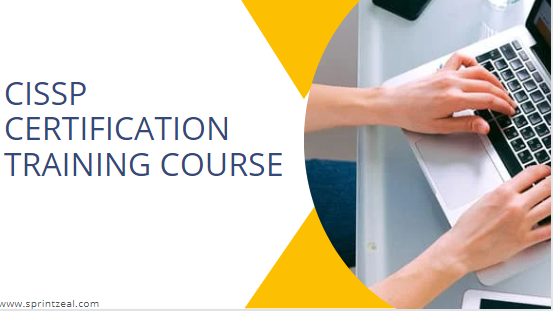The Certified Information Systems Security Professional (CISSP) is one of the most respected and sought-after certifications in the field of information security. Issued by the International Information System Security Certification Consortium, or ISC2, the CISSP is recognized globally and serves as a validation of a professional’s ability to design, implement, and manage an information security program. Given its prestige, many aspiring security professionals wonder just how difficult it is to pass the CISSP exam. This article delves into various aspects of the exam to provide a comprehensive understanding of its level of difficulty.
1. What Makes the CISSP Challenging?
The difficulty of the CISSP Certification in Miami FL stems from several factors, including its breadth of content, complex question format, and the high standards it upholds for professionals entering the field.
a. Extensive Knowledge Domains
The CISSP exam covers eight domains of information security, as outlined in the CISSP Common Body of Knowledge (CBK). These domains include:
- Security and Risk Management
- Asset Security
- Security Architecture and Engineering
- Communication and Network Security
- Identity and Access Management (IAM)
- Security Assessment and Testing
- Security Operations
- Software Development Security
Each of these domains is vast, covering everything from governance, risk management, and compliance to software security and encryption protocols. Candidates need to be well-versed in a wide array of topics that span the entire field of cybersecurity, making the breadth of the exam challenging to manage.
b. Complex, Scenario-Based Questions
Unlike many other certifications that focus on straightforward, technical questions, the CISSP exam often presents complex, scenario-based questions. These questions require test-takers to analyze situations, apply their knowledge, and select the best answer out of several plausible options. This format tests not just rote memorization, but a candidate’s ability to apply their knowledge in real-world scenarios, which adds to the challenge.
c. Adaptive Exam Format
The CISSP exam is administered using a Computerized Adaptive Testing (CAT) format. This means that the difficulty of the questions will adjust based on the candidate’s performance. If you answer a question correctly, the next question will be harder; if you answer incorrectly, the next question will be easier. The test is designed to gauge your ability to consistently perform well on increasingly difficult questions. This adaptive approach adds a psychological layer of difficulty since candidates cannot gauge how well they are doing based on question difficulty alone.
2. Preparation Requirements
a. Prerequisites
Before you can even attempt the CISSP exam, ISC2 requires candidates to have at least five years of paid work experience in at least two of the eight domains covered by the exam. This prerequisite alone makes the CISSP inaccessible to beginners or those new to the field. For professionals who have accumulated the necessary experience, these five years of practice provide a solid foundation but may not be enough without focused preparation.
b. Time Investment
Preparation for the CISSP exam can take anywhere from three months to a year, depending on how much time you can dedicate to study and how familiar you already are with the material. Many professionals estimate that it takes between 100 to 150 hours of study time to be adequately prepared for the exam. This may involve reading textbooks, watching video tutorials, attending boot camps, and using practice exams to solidify knowledge.
c. Study Materials and Resources
There are numerous study materials available for the CISSP exam, including official study guides, online courses, and forums for peer support. One commonly used resource is the "Official (ISC)2 Guide to the CISSP CBK," a comprehensive textbook covering all eight domains. Practice exams, in particular, are crucial as they help candidates familiarize themselves with the exam format and timing. However, the sheer volume of information to absorb can make the preparation phase feel overwhelming, especially for those juggling work and study.
3. Exam Day Challenges
The CISSP exam consists of 100-150 questions and has a time limit of three hours. The pressure of answering scenario-based questions under a strict time constraint can cause anxiety, leading to mistakes even for well-prepared candidates. Test-takers need to pace themselves to ensure they have enough time to answer all questions thoughtfully.
The adaptive nature of the exam means that the exact number of questions varies, with some candidates finishing around the 100-question mark if they perform exceptionally well. The uncertainty surrounding the number of questions can cause stress during the exam, particularly if the candidate is unsure of how well they are performing.
4. Pass Rates and Statistics
While ISC2 does not release official pass rates for the CISSP exam, industry estimates suggest that the pass rate is around 50-70%. This indicates that while the exam is difficult, a significant number of well-prepared candidates do manage to pass on their first attempt. It’s worth noting that candidates who do not pass on the first try are allowed to retake the exam after a waiting period, and many successfully pass on their second or third attempt.
5. Tips for Success
- Focus on Weak Areas: After initial study, identify the domains where your knowledge is weakest and concentrate your efforts there.
- Use Multiple Resources: Don’t rely solely on one textbook or resource. Use video tutorials, practice exams, and discussion forums to broaden your understanding.
- Practice Time Management: During practice exams, ensure that you’re able to pace yourself and answer questions within the time limit.
- Stay Calm on Exam Day: The adaptive format can feel intimidating, but staying calm and focused will help you think clearly under pressure.
Conclusion
The CISSP is indeed a difficult exam to pass, but not impossible. With the right preparation, including a strong study plan and adequate hands-on experience, many professionals do pass and achieve this prestigious certification. The key to success lies in understanding the complexity of the exam, dedicating the necessary time to preparation, and approaching the exam with confidence.



